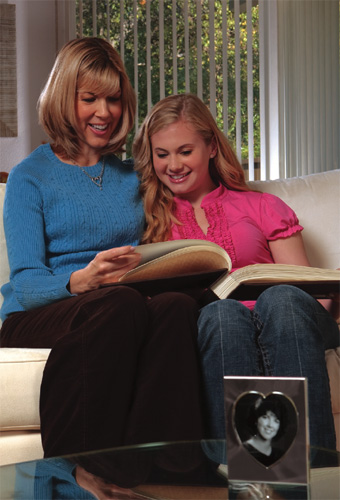
Eleven years ago, a call from Michelle Burke's doctor interrupted dinner at home.
She needed surgery and she needed it right away. Exhaustion had prompted Michelle, then 32, to see a different doctor a few months before. "You've got three young children," her former doctor had told her. "Everybody's tired." Michelle's sister Shari had died of heart disease at age 19. "Despite my family history, no one considered that I might have heart disease."
But Michelle had cardiomyopathy, a serious disease in which the heart muscle becomes weakened and doesn't work as well as it should. It can also cause arrhythmias, abnormal heartbeats that make the heart pump less effectively. Most arrhythmias aren't life-threatening, but some are extremely dangerous and require treatment and management. Michelle's would.
Michelle was in the hospital for 10 days. She had medications adjusted to help her heart function better, and doctors implanted an internal cardiac defibrillator (ICD) to deliver an electrical shock if her heart went into a dangerous rhythm.
The ICD implant was only the start of the changes in her life. Michelle committed to take better care of herself. Before her diagnosis, she would eat the crusts off her kids' peanut butter and jelly sandwiches and stay up late to do an extra load of laundry instead of exercising. Taking care of herself was not a priority.
Thanks to our Go Red For Women initiative, Michelle has learned to take steps to protect her heart. "Don't ignore your symptoms. You are the expert on you. If you have fears or questions or you're not feeling well, get it checked out."
That commitment to getting healthier has rubbed off on daughter Madison, 16, who has joined the Youth Advisory Board of the Alliance for a Healthier Generation (our partnership with the William J. Clinton Foundation). Madison works with other youth to empower kids to make healthy changes to prevent childhood obesity.